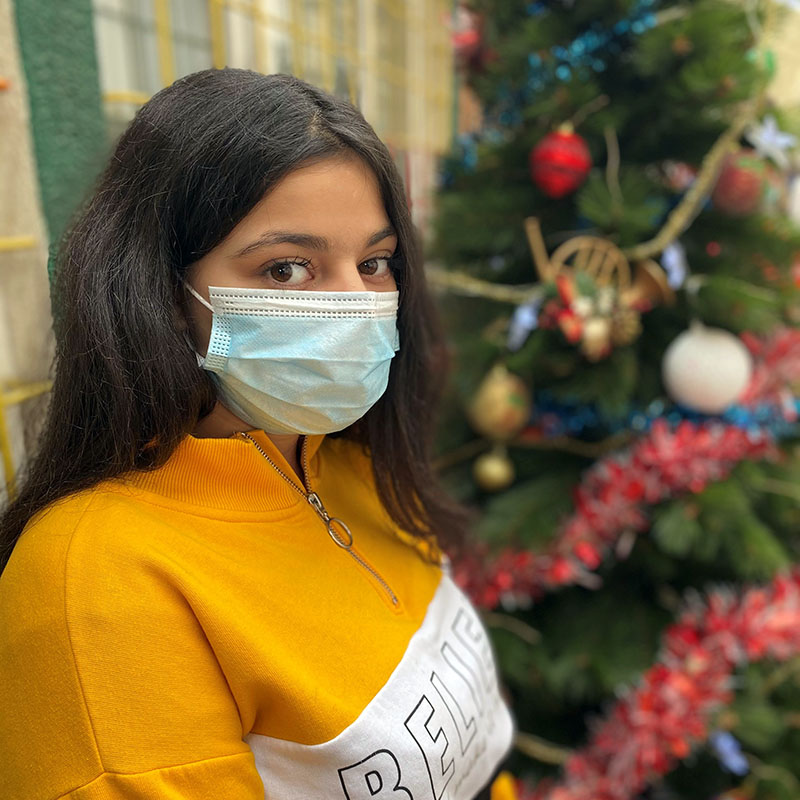Stories of Change

Photo courtesy Center for Youth Integration
A mental health victory in Belgrade
Jovana and her sisters used to wash car windows in a few intersections in Belgrade, Serbia. Like all children who work on the street, they faced a lot of risks. At home, they were still up against the extra expectation placed on them for being girls: caring for younger siblings and housework. Jovana comes from a Roma family; families like hers are often trapped in a cycle of poverty and discrimination.
Girls in situations like Jovana’s often start families at very young ages–often before they turn 18. They are trying to escape the harsh realities of their daily lives, and their communities accept or even encourage young families.
Our partners at the Center for Youth Integration in Belgrade have known Jovana for six years. She regularly comes to the drop-in centers that CYI runs, which are spots where children who live or work on the street can eat a meal, take a shower, get a change of clothes, work on homework and relax with friends. The center staff work with families to enroll their children in school and steer them away from working on the street. And for Jovana, it worked. She stopped washing car windows and focused on school.
Suddenly, the day before her 15th birthday, Jovana ran away from home. She had been messaging with a boyfriend who she had met a few weeks prior. She ran away with him so that they could get married and start a life together. Fearing for her safety, the CYI team and Jovana’s parents alerted the police, who found her two days later about 90 miles away from Belgrade. They brought her home.
Jovana’s family, the CYI team and the local welfare center worked together to come up with a plan to help Jovana find comfort and happiness in her life. They agreed that Jovana would visit the drop-in center every day in order to get care, support and advice.
The very next day, Jovana ran away from home again. The whole team was on alert to find her, and eventually they did. She was in bad shape, even though the medical check-up showed no physical injuries. Her siblings then confided in the CYI team that Jovan had been aggressive towards herself and other family members. The CYI team advised Jovana’s parents to take her to a therapist, which they agreed to. This is a huge deal, since mental health issues are considered a taboo in Roma communities. A psychologist from the CYI staff shared relevant information with her new therapist. Jovana started receiving treatment and medication to help treat her depression and extreme stress. The CYI team has rallied around her to make sure she is getting all of the love and support possible.
Today, Jovana is doing much better. She is taking her medications per her doctor’s instructions, and she’s feeling a lot better. When she visits the shelter, the team has special activities that can help her feel calm and relaxed. Between her family, the center staff and her therapist, she has a team of people who have her back. Her recovery is still ongoing; she doesn’t feel up to going back to school just yet, even though she has enrolled in high school (a huge accomplishment in itself, since many Roma girls stop school after primary school). It will take more time for her to regain her confidence and motivation, but the CYI team is optimistic and supportive.
“Thanks to the drop-in shelter, I learned how to take care of myself. I feel safe here, this is my second family,” said Jovana. Her words describe what the CYI team hopes every child knows: that the center is a safe place for children, no matter their situation.
